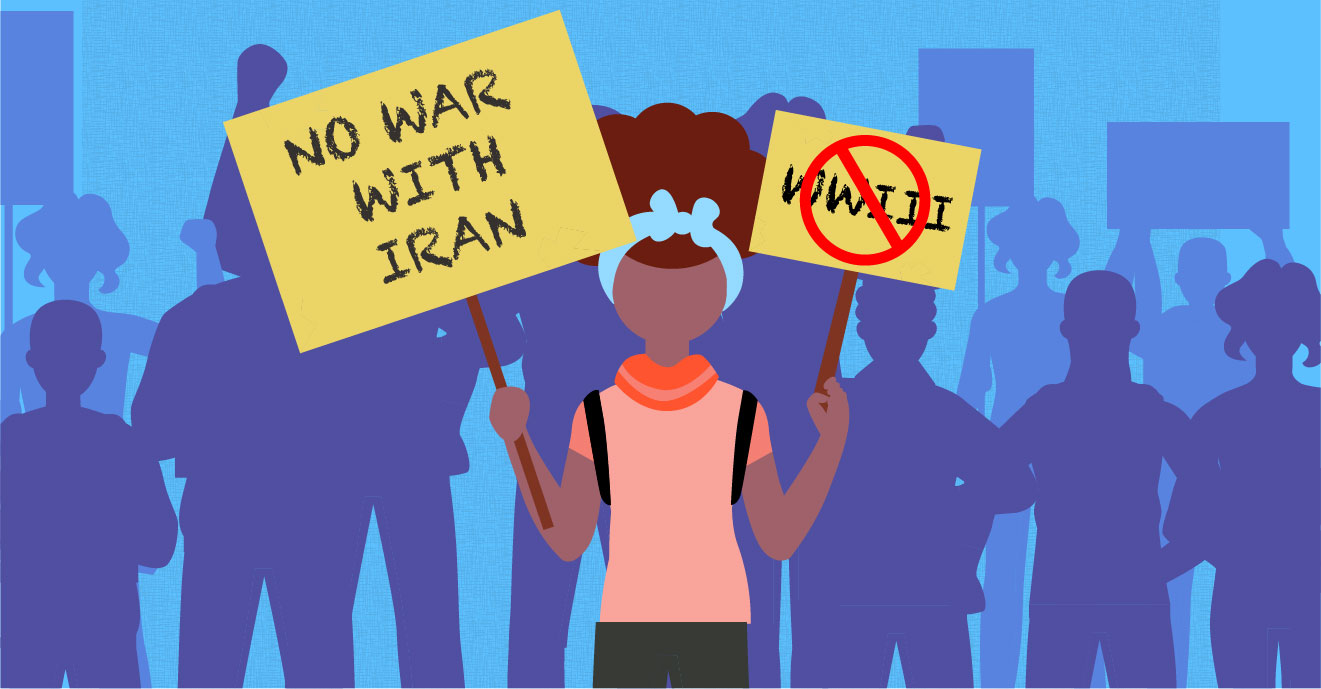This is the weekly column written by Blavity:Politics Senior Editor Kandist Mallett.
On January 2, the Pentagon confirmed that President Trump ordered the assassination of Iranian Commander Qasem Soleimani. On only the second day of the new year, before we could even finish posting all of our #NewYearNewMe stories, the president got us into another war. By killing such a high-level Iranian official, Trump did more than just escalate tensions; he committed an act of war without approval from Congress.
Since the execution of Soleimani, the Pentagon has said that it will deploy 3,500 additional troops to the Middle East. Where exactly in the Middle East is unclear at this point.
Just weeks ago, The Washington Post released The Afghanistan Papers, which revealed that, for years, the U.S. knew they were not making any progress in Afghanistan but continued its occupation anyway. Now, in a presidential election year, our current president has taken what has long been a proxy war with Iran (see: Iraq, Libya and Syria) and directly attacked one of Iran’s leading officials.
Iran’s supreme leader Ayatollah Ali Khamenei has vowed “harsh revenge” for the killing of Soleimani. This has prompted law enforcement in major cities, like Los Angeles and New York City, to make statements assuring citizens that they are preparing for any possible attacks. Of course, this will lead to more policing and surveillance of communities of color, as we saw after 9/11 with domestic surveillance of Muslim and Arab communities.
And what for? What is this all about? Oil? Vendettas? Protecting U.S. corporate interests in the Middle East? Is the U.S. determined to destroy any Middle Eastern country with natural resources whose leader is not willing to be an imperialist puppet?
In 1953, the CIA led a coup against Iran's democratically elected Prime Minister Mohammad Mosaddegh for nationalizing the country's oil industry. Within four days, the CIA had successfully overthrown Iran’s opportunity for democracy in the interest of Great Britain’s desire to retain control of Iran’s oil supply. They then reinstated the monarchy, which was later overthrown in 1979 during the Islamic Revolution. This is all to say that the U.S. has not had the best interests of the Iranian people at heart for a very long time, so while this may seem like a trigger-happy president starting a war out of nowhere, the reality is that the U.S. has longed for a war with Iran, and each president has built an arsenal, so the next one would be well-equipped should they decide to declare one.
In 2003, when the U.S. went to war with Iraq, we had our largest anti-war protests in U.S. history. College students across the country walked out, yet it didn't stop the war. Elected officials, who should have known better, voted for the war anyway. The media echoed sentiments of the White House and the Pentagon that Saddam Hussein had weapons of mass destruction. But, as we all now know, there were never weapons of mass destruction in Iraq. Now we’re hearing that Soleimani had to be killed because he was “actively planning attacks against American diplomats and service members.” Even progressive Democrats are echoing these hawkish talking points.
“Soleimani was a murderer, responsible for the deaths of thousands, including hundreds of Americans,” presidential candidate Elizabeth Warren tweeted.
What general or military commander doesn’t have blood on their hands? I say this not to defend Soleimani but to say that American exceptionalism is what always justifies the U.S. launching illegal wars of aggression. It has led to the death of millions in the Middle East, Eastern Africa and South Asia. And if we don’t pause and question our political leadership, even the ones in our own party, we might find ourselves in another decade of endless war.
